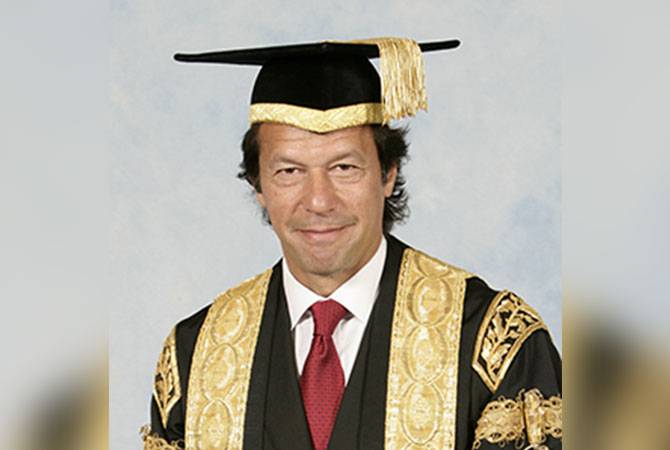Oxford Chancellor
The application of Imran Khan, the cricketer-turned-politician, to become the next chancellor of Oxford University has sparked a significant debate, as reported in a column for The Guardian.
Khan, Pakistan’s former Prime Minister, is known for his controversial comments on sensitive issues, and his potential appointment has generated mixed reactions within the Oxford community, which is known for its values of inclusivity and progressive ideals.
Khan has been a polarizing figure throughout his career, making statements that have drawn criticism both at home and abroad. For instance, he has referred to Salman Rushdie as a “blasphemer” and controversially described Osama bin Laden as a “martyr.”
British journalist Catherine Bennett has pointed out that Khan’s opinions on delicate subjects, including his views on women’s roles in cases of sexual assault and his alignment with the Taliban’s stance on women’s education, have caused considerable concern. His suggestion that women should take measures to avoid “temptation” reflects a perspective that has been widely criticized as regressive and out of touch with contemporary societal norms.
These controversial views raise questions about how Khan’s potential leadership would be perceived by the Oxford community, especially since his candidacy may dissuade other candidates from vying for the prestigious role.
Khan is being promoted as a possible successor to Chris Patten, the outgoing chancellor of Oxford University. Conservative peer Lord Hannan has lauded Khan as a “towering figure” who would be an outstanding choice for the position.
The role of chancellor, which lasts for a decade, involves both administrative duties and the presiding over key ceremonies—responsibilities that require strong public engagement and a commitment to the university’s values.
However, Khan’s alignment with Oxford’s values is under scrutiny, particularly in light of his previous comments on free speech and human rights. Patten, the current chancellor, has been a strong advocate for academic freedom and has cautioned against the suppression of free expression, drawing a clear line between Oxford and institutions in countries like China that stifle dissent.
Khan’s praise for the Chinese Communist Party and its controversial practices regarding human rights adds another layer of complexity to his candidacy, potentially clashing with the university’s ethos of upholding free thought and expression.
Khan’s supporters argue that the charges against him, including a lengthy prison sentence they claim is politically motivated, should not detract from his suitability for the role. They suggest his popularity and deep-rooted alliances within the cricket community, along with a broader admiration for his charismatic persona, are significant factors in his candidacy.
However, critics argue that his candidacy sends a troubling message about the university’s commitment to its female students and its broader community.
Journalist Peter Oborne has remarked that Khan’s nomination seems designed to offend women at Oxford, underlining the discord between his past remarks and the values expected of an Oxford leader.
Despite some claims that Khan now supports “diversity, equality, and inclusion,” many question his sincerity. Detractors believe that a genuinely suitable candidate would refrain from entering a race perceived as perpetuating male dominance in university leadership.
The current lineup of candidates has been described as unremarkable, with some considering it an odd mix of individuals lacking substantial qualifications.
In contrast, Lady Elish Angiolini, a distinguished lawyer and former procurator fiscal of Scotland, stands out as a compelling candidate for the chancellorship. If elected, she aims to improve accessibility for underprivileged students at Oxford.
Angiolini has an impressive career, including her role as principal of St Hugh’s College and chairing significant inquiries into critical societal issues. Her commitment to addressing gender disparities in academia positions her as a candidate whose values align more closely with the principles of inclusivity and equality.
As the election for Oxford’s chancellorship draws near, many hope that Angiolini’s leadership would better reflect the university’s commitment to these ideals, in stark contrast to Khan’s controversial past and his association with ideologies that seem incompatible with Oxford’s values. The outcome of the vote will be closely watched as a reflection of Oxford’s dedication to its foundational principles.


